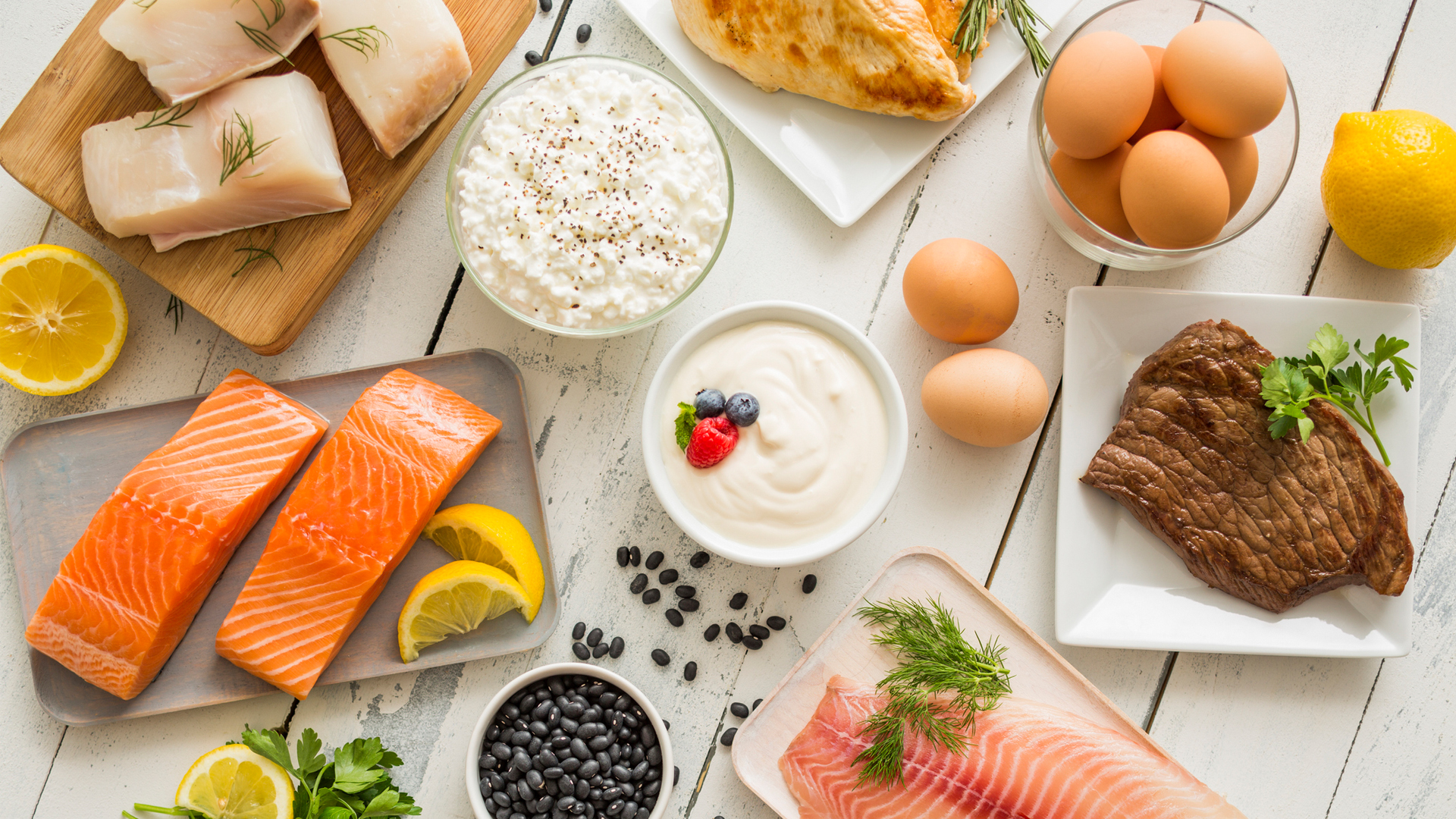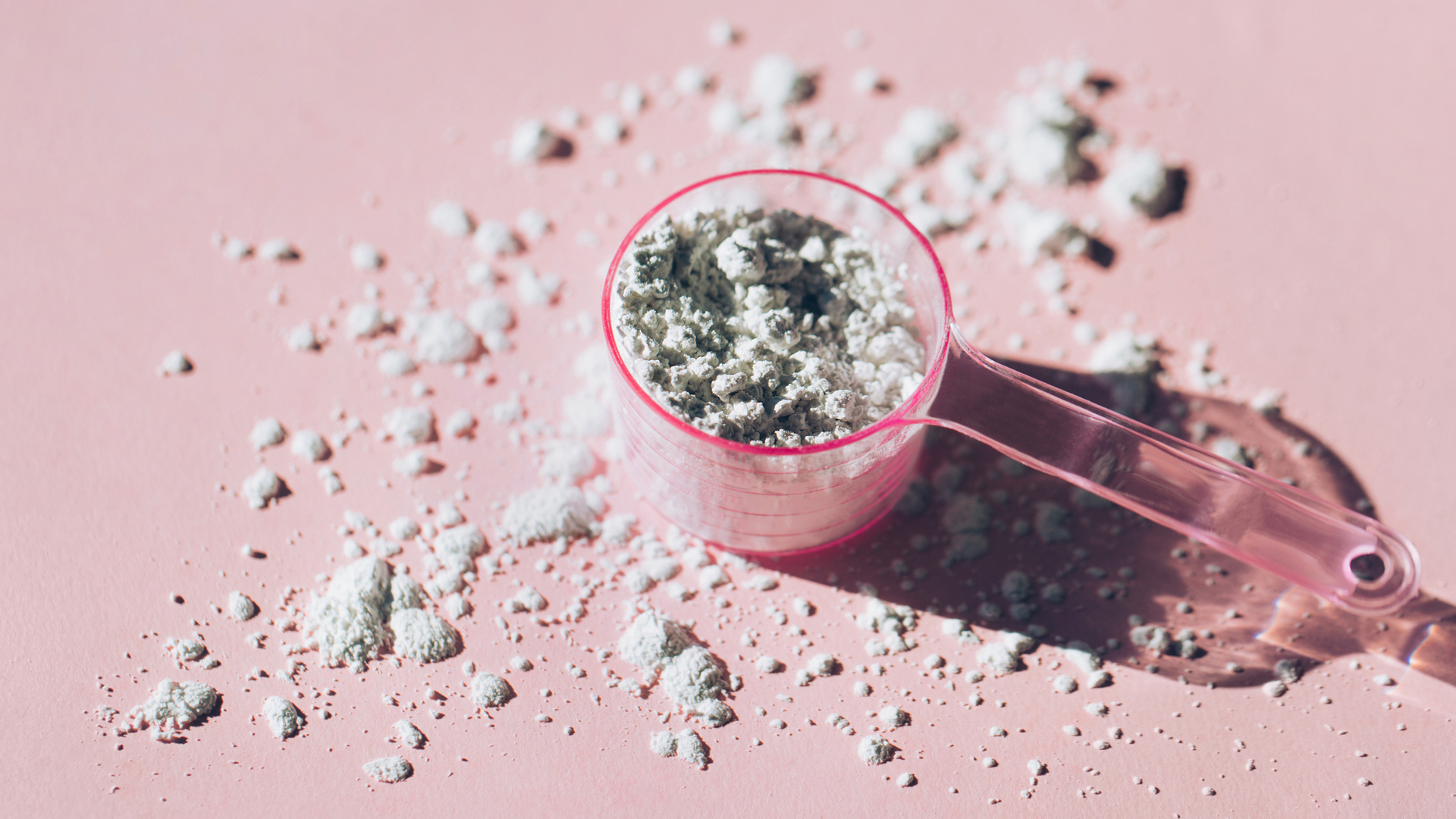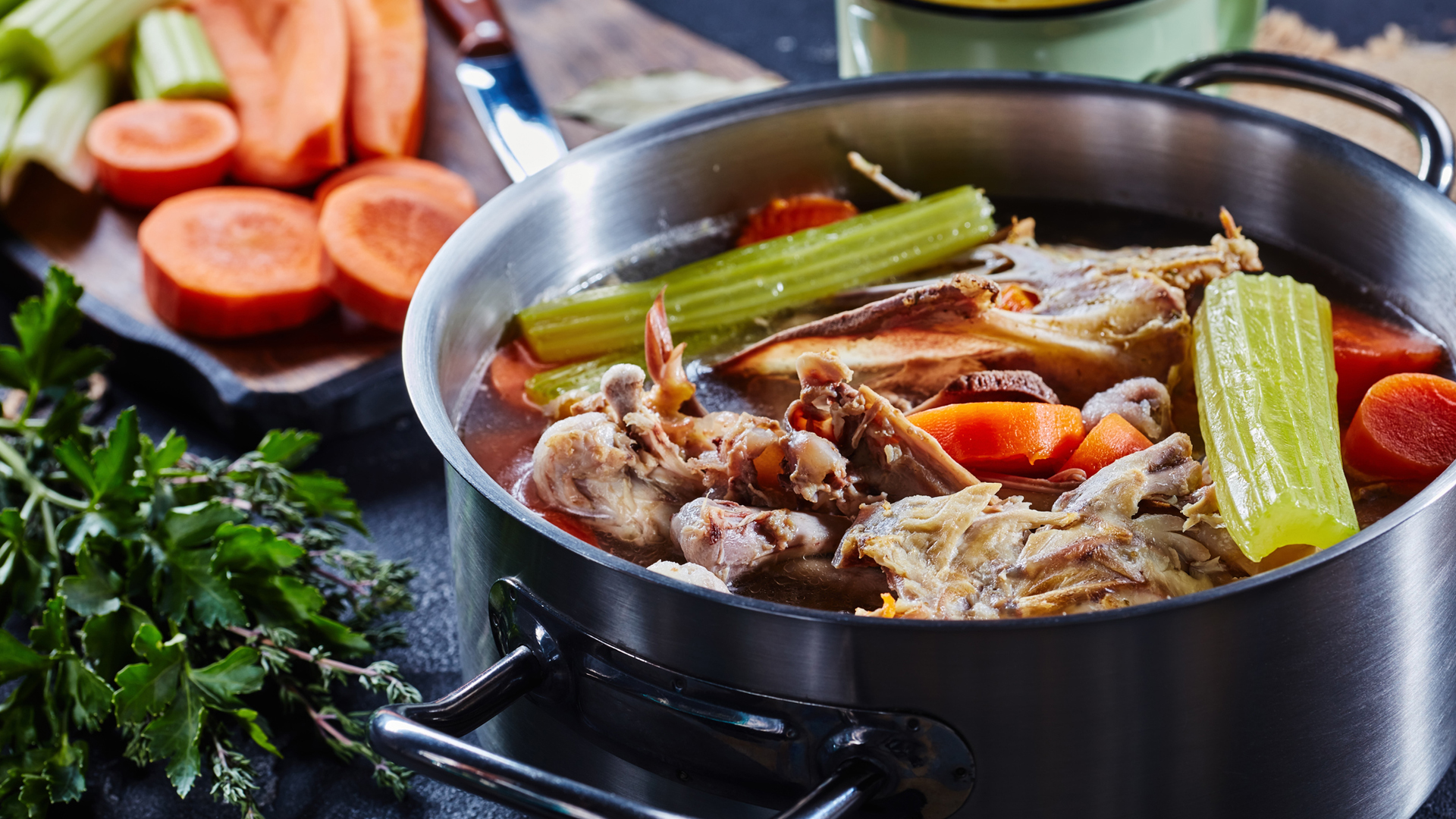What foods have collagen?
What foods have collagen and how does the body break this protein down? Here's the lowdown on this so-called ‘wonder skin’ ingredient

Get the world’s most fascinating discoveries delivered straight to your inbox.
You are now subscribed
Your newsletter sign-up was successful
Want to add more newsletters?

Delivered Daily
Daily Newsletter
Sign up for the latest discoveries, groundbreaking research and fascinating breakthroughs that impact you and the wider world direct to your inbox.

Once a week
Life's Little Mysteries
Feed your curiosity with an exclusive mystery every week, solved with science and delivered direct to your inbox before it's seen anywhere else.

Once a week
How It Works
Sign up to our free science & technology newsletter for your weekly fix of fascinating articles, quick quizzes, amazing images, and more

Delivered daily
Space.com Newsletter
Breaking space news, the latest updates on rocket launches, skywatching events and more!

Once a month
Watch This Space
Sign up to our monthly entertainment newsletter to keep up with all our coverage of the latest sci-fi and space movies, tv shows, games and books.

Once a week
Night Sky This Week
Discover this week's must-see night sky events, moon phases, and stunning astrophotos. Sign up for our skywatching newsletter and explore the universe with us!
Join the club
Get full access to premium articles, exclusive features and a growing list of member rewards.
Collagen is an essential ingredient that we all need for glowing, youthful-looking skin, healthy hair and nails, and flexible joints. Knowing what foods contain collagen and which foods can help boost the body’s ability to make it can help you to get the most out of this protein.
We’ve looked at the latest research to see which foods can be included as part of a healthy diet to naturally boost collagen levels. From meat and fish to plant-based food, the sources of collagen – and the amino acids that aid its production – are plentiful. If you’re unsure whether to take collagen supplements, we’ve got info on the many options for boosting your levels – and we’ve also listed the best protein powders in a handy guide, too.
Before you start eating more foods rich in collagen – or if you’re considering a collagen supplement – it’s helpful to know how it can benefit your skin’s appearance. You’ll also need to know what the health impacts are of collagen vs whey protein and whether one is better than the other for you and your nutritional needs.
Knowing when your collagen levels start to fall naturally is also helpful in figuring out when to start including more food sources in your day-to-day diet. Read on to find out. We’ll also explain how the body breaks collagen down and moves it around the body to where you need it most.
What is collagen?
Collagen is a protein that is naturally present in the body. It comprises 19 amino acids, including glycine, proline, and hydroxyproline. There are around 28 different types of collagen in the body, but 90% is type I collagen, which is the collagen that helps to build and maintain connective tissues in the muscles, skin, bones and cartilage, improving flexibility and supporting cells, tissues, and organs. Collagen is the essential ingredient for elasticity in the skin, giving it a fuller, plumper and smoother appearance.
As we age, the body produces less collagen. Studies, including one in the journal Plastic and Aesthetic Research, show that collagen production declines by 1% to 1.5% from early adulthood. Lifestyle choices can affect collagen production, as can pollution in the atmosphere, such as tobacco smoke and free radicals, as these can damage collagen levels.
Depleting levels of collagen can have several effects on the body:
Get the world’s most fascinating discoveries delivered straight to your inbox.
- Weaker bones
- Wrinkles and sagging skin
- Joint pain
- Poor muscle strength
- Gastrointestinal problems

It’s possible to boost collagen levels in the body by taking collagen supplements, though plenty of food sources of collagen are also available. Many of these offer other nutritional benefits when eaten as part of a healthy, balanced diet.
It’s also worth noting that the US Food and Drug Administration does not currently regulate collagen and other dietary supplements, so getting more collagen from your diet may be safer than popping a pill.
What are the best food sources of collagen?
The following foods are either rich in collagen or can help boost levels because they contain the amino acids that allow the body to create collagen.
Bone broth
Bone broth is made by boiling down animal bones, cartilage, tissue and ligaments to create a liquid rich in gelatin, a form of collagen. Some studies, including in the journal Medicina, have shown that bone broth can help to fight inflammation, improve gut health and boost joint health.
However, the amount of collagen can vary depending on what bones and tissues are present. In addition, a 2019 study in the International Journal of Sport Nutrition and Exercise Metabolism found that bone broth was less reliable than collagen supplements in supporting collagen production.

Meat, poultry and fish
Certain types of meat with many connective tissues, such as brisket or pot roast, are rich in collagen. Poultry and fish also contain amino acids that help to stimulate the production of collagen in the body.
Eggs
Eggs contain proline, an amino acid that helps boost collagen levels in the body, increasing muscle strength.
Fruit and veg high in vitamin C
Vitamin C is one of the best-known antioxidants we can eat. It offers various benefits, one of which is stimulating the body to produce collagen. Foods rich in vitamin C include:
- Citrus fruits (oranges, grapefruits and tangerines)
- Berries (strawberries, raspberries and blueberries)
- Bell peppers
- Tomatoes
- Broccoli

Leafy greens
Dark, leafy green vegetables, such as kale, spinach and Swiss chard contain plenty of vitamin C and antioxidants that help the body produce collagen.
Garlic
Garlic is naturally high in sulfur, which is necessary to produce collagen. Try doubling up on garlic in your usual dishes to enhance the flavor and get more health benefits from this versatile ingredient.
Foods that are naturally high in zinc
Zinc is essential to the production of collagen in the body. Foods naturally high in zinc include oysters, beans, legumes, nuts and whole grains.
How does the body break down collagen?
When we eat foods that contain collagen, the body can’t absorb the collagen directly, according to Food Insight. Instead, gastrointestinal processes in the stomach break the collagen down into smaller amino acids or peptides. The bloodstream then transports these around the body, to wherever they are needed most.
While it may not be possible to target your dietary collagen to specific areas of your body, such as your skin or hair, it may be reassuring to know that the body prioritizes the areas that need it most – so you should benefit from the healthy, collagen-rich and amino-acid-rich foods you include in your daily diet.
This article is for informational purposes only and is not meant to offer medical advice.
Joanne Lewsley is a UK-based freelance writer and editor, covering health and lifestyle news and features. She mainly creates evidence-based health and parenting content and has worked with a number of global sites, including BabyCentre UK, Medical News Today, Fit & Well, Top Ten Reviews, and Yahoo!
 Live Science Plus
Live Science Plus






